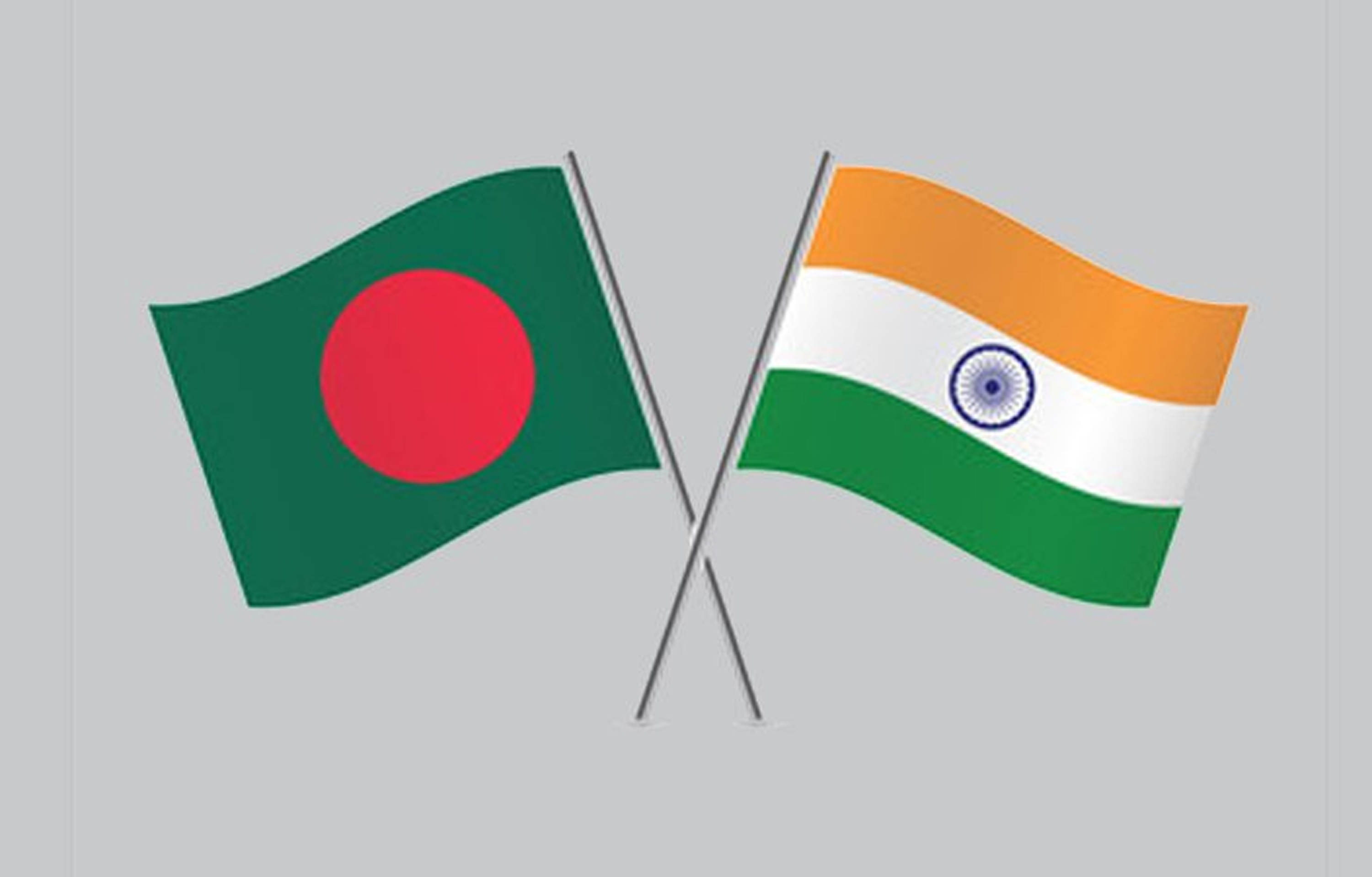DHAKA: A major diplomatic achievement of Bangladesh in 2020 was the further consolidation of bilateral ties with India, amidst the raging COVID-19 pandemic that posed a serious challenge to the country’s rudimentary public health care system and slowed down one of the fastest growing economies in South Asia.
Prime Minister Narendra Modi, whose planned visit to Dhaka in March was cancelled due to the pandemic, described Bangladesh as a “key pillar” of India’s ‘Neighbourhood First’ policy during a virtual summit on December 17 with his Bangladeshi counterpart Sheikh Hasina, who called India a “true friend”.
The two leaders inaugurated a key rail link between Haldibari and Chilahati, which was defunct since the India-Pakistan war of 1965, taking the number of operational rail links between the two countries to five.
After the partition in 1947, seven rail links were operational between India and Bangladesh – the then East Pakistan.
With this new link coming into operation, tourists from Bangladesh will be able to visit places like Darjeeling, Sikkim, Dooars, apart from countries like Nepal and Bhutan, with ease.
“It has been a challenging year due to the epidemic. But it is a matter of satisfaction that India and Bangladesh had good cooperation in this difficult time. We are also having good cooperation in the field of vaccines. We will also take special care of your needs,” Modi assured Hasina.
A joint statement issued at the end of the summit said that Modi assured that vaccines would be made available to Bangladesh as and when produced in India.
Both prime ministers expressed satisfaction over the current state of bilateral relations based on shared bonds of history, culture, language, and other unique commonalities that characterize the partnership. They emphasised that bilateral relations are based on fraternal ties and reflective of an all-encompassing partnership based on sovereignty, equality, trust and understanding that transcends a strategic partnership.
Foreign Secretary Harsh Vardhan Shringla travelled to Dhaka in August on his first visit out of India since the COVID-19 lockdown began in late March.
Shringla, who previously served as India’s high commissioner in Dhaka, earlier visited Bangladesh in the first week of March, in his first foreign trip after assuming charge as foreign secretary.
During his March visit, Shringla said the updation of the National Register of Citizens (NRC) will have no implications for Bangladesh, asserting that it is a process that is entirely internal to India.
Bangladesh was apparently upset following the roll out of the NRC in Assam.
Foreign Minister AK Abdul Momen and Home Minister Asaduzzaman Khan had cancelled their visits to India in December 2019 following passage of the new citizenship bill, according to which members of Hindu, Sikh, Buddhist, Jain, Parsi and Christian communities who have come from Pakistan, Bangladesh and Afghanistan till December 31, 2014 following religious persecution there will get Indian citizenship.
The Border Security Force and the Border Guard Bangladesh held the 51st director general-level talks in December end during which the two forces signed a Joint Accord of Discussion and decided to increase coordinated night patrolling to prevent illegal activities.
The political landscape in 2020 was largely dull unlike the usual scenario in previous years in the highly polarised South Asian nation.
On the domestic front, ailing former prime minister and opposition leader Khaleda Zia was released from jail in March for six months on condition that she would stay at home and receive treatment. In September, her release was extended by another six months.
The 74-year-old three-time premier and the Bangladesh Nationalist Party chief is serving a 17-year prison term in two graft cases since February 2018.
The relationship between Bangladesh and China developed further in 2020, especially on the commercial and economic fronts. China has promised to enhance support for Bangladesh’s infrastructure projects as a “development partner”.
Bangladeshi media reported that Dhaka had sought a loan of nearly USD 1 billion from China to develop the Teesta River Comprehensive Management and Restoration Project.
India’s commitment to promptly deliver to Bangladesh the COVID-19 vaccines and to remove non-tariff barriers reset the positive course of bilateral ties which both the capitals have repeatedly called “rock solid”.
The pandemic has so far infected more than 511,000 people and killed over 7,500 in Bangladesh. Over 454,500 patients have recovered.
The COVID-19 pandemic slowed down Bangladesh’s economic growth. However, Bangladesh was able to escape a contraction in 2020.
The global health crisis also affected Bangladesh’s garment industry, which accounts for 11 per cent of the country’s GDP and employs around 4.4 million people.
According to analysts, economic activities in Bangladesh have recovered more strongly than expected with both exports and remittances growing.
Japan-based Nikkei Asia in December described the Bangladesh case to be “most surprising” among developing nations having “good” COVID-19 crises as the country contained well the pandemic despite being a densely populated nation with a rudimentary health care system.
The year 2021 will be a significant one for Bangladesh as it will celebrate the 50th year of its independence. Prime Minister Modi is likely to visit Dhaka in March 2021 to join the celebrations that also marks 50 years of Bangladesh-India diplomatic relations. (AGENCIES)
Home Latest News Bangladesh, India consolidate bilateral ties in 2020 amidst challenges posed by COVID-19


